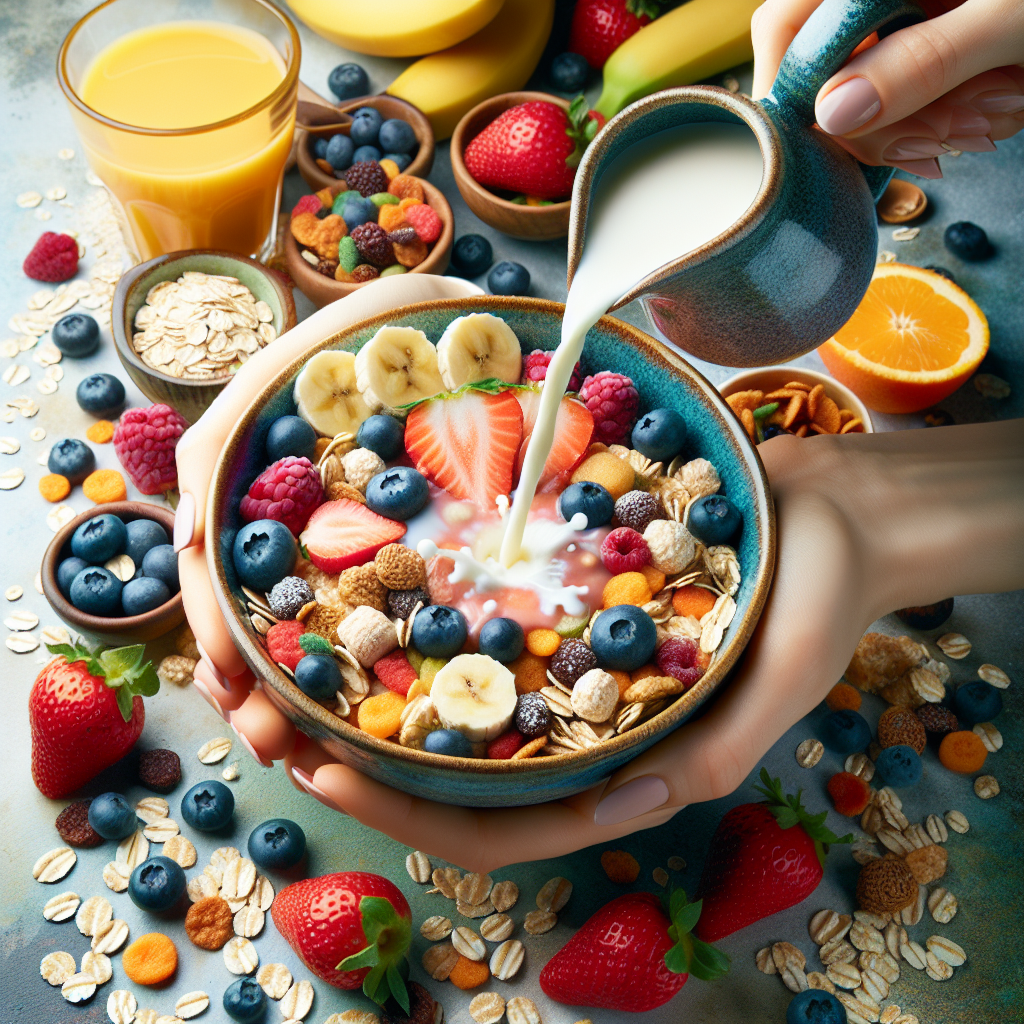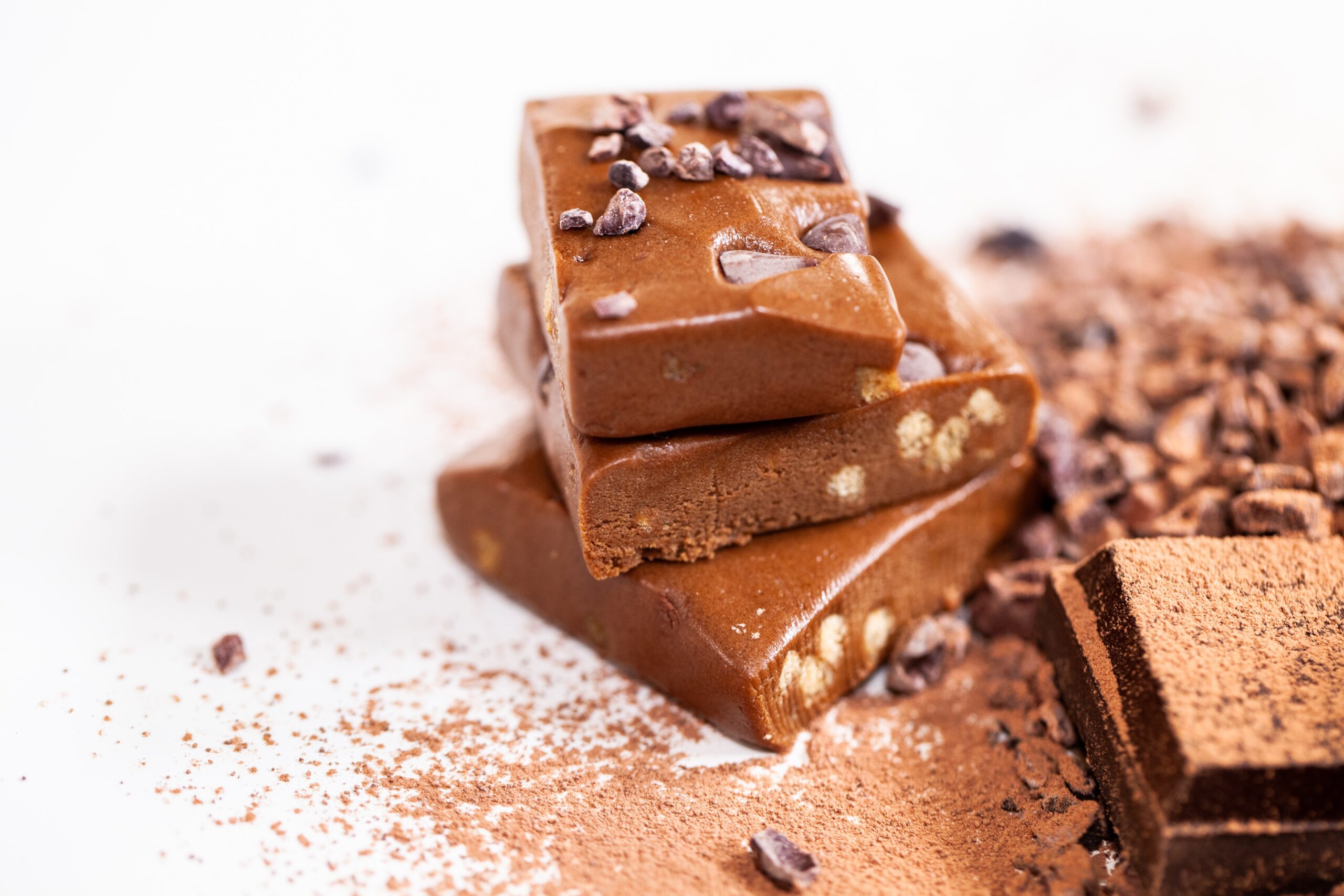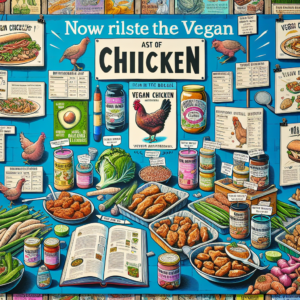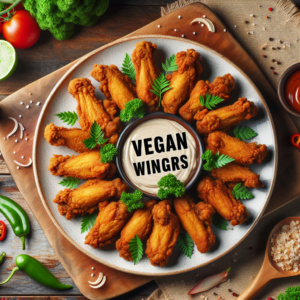Looking for a delicious and nutritious breakfast option that aligns with your vegan lifestyle? Look no further! In this article, we’re here to talk about the wonderful world of vegan cereal. Whether you’ve been vegan for years or just starting out on your plant-based journey, vegan cereal is a convenient and tasty way to fuel your mornings. From crunchy clusters of oats and nuts to colorful, fruity flakes, there’s a wide variety of options to suit every taste bud. So grab a bowl, pour in some plant-based milk, and get ready to start your day off right with a bowlful of vegan goodness!
Exploring the World of Vegan
What is Vegan Cereal?
Definition
Vegan cereal refers to a type of breakfast cereal that is made without any animal-derived ingredients. It is a plant-based alternative to traditional cereal options that typically contain animal products such as milk, honey, or gelatin. Vegan cereals are not only suitable for individuals following a vegan diet, but they can also be enjoyed by anyone looking for a nutritious and wholesome morning meal.
Ingredients to Avoid
When choosing vegan cereal, it’s important to be aware of certain ingredients that are commonly found in non-vegan cereals. These ingredients include milk powder, honey, whey, gelatin, and any other animal-derived additives. By reading the ingredient list carefully, you can ensure that the cereal you choose is truly vegan.
Benefits of Vegan Cereal
Nutritional Value
Vegan cereals are often made with whole grains, which are an excellent source of fiber, vitamins, and minerals. They are generally low in fat and cholesterol-free, making them a healthy option for breakfast. Additionally, vegan cereals are frequently fortified with crucial nutrients such as iron, calcium, and vitamin B12, which are commonly found in animal products. By choosing a well-balanced vegan cereal, you can easily meet your nutritional needs.
Health Benefits
Incorporating vegan cereal into your diet can have numerous health benefits. The high fiber content of vegan cereals aids digestion and promotes a healthy gut. The low fat and cholesterol levels contribute to heart health and can help maintain a healthy weight. Moreover, the vitamins and minerals found in vegan cereals can strengthen the immune system and support overall well-being.
Eco-friendly
One of the significant advantages of vegan cereals is their positive impact on the environment. By eliminating the use of animal products, vegan cereals reduce carbon emissions, water usage, and deforestation associated with the dairy and meat industries. Opting for a vegan cereal can help promote sustainability and contribute to a greener planet.
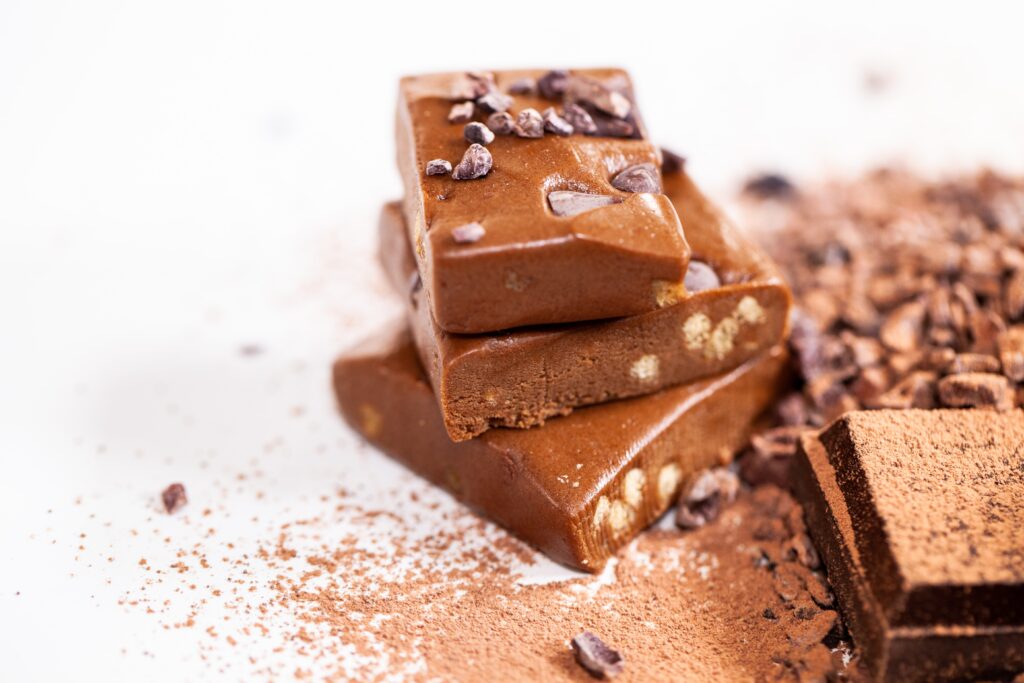
Popular Brands of Vegan Cereal
Brand A
Brand A offers an extensive range of vegan cereals that are both delicious and nutritious. Their cereals are made with whole grains and fortified with essential vitamins and minerals. With an array of flavors and varieties, Brand A provides options that cater to different taste preferences and dietary needs. Their commitment to quality and sustainability makes them a favorite among many health-conscious individuals.
Brand B
Brand B is another notable brand in the vegan cereal market. They pride themselves on using only the finest plant-based ingredients to create their cereals. From crunchy granola to tasty flakes, Brand B offers a wide selection of vegan cereals that are packed with flavor and nutrients. Their dedication to producing high-quality products without animal-derived ingredients has earned them a loyal customer base.
Brand C
For those seeking gluten-free options, Brand C is a fantastic choice for vegan cereals. Their line of gluten-free and vegan cereals includes a variety of flavors and textures to suit diverse palates. Brand C’s commitment to allergen-friendly products ensures that individuals with dietary restrictions can enjoy a delicious and wholesome breakfast without compromising their health.
How to Choose a Vegan Cereal
Reading Ingredient List
To ensure that the cereal you choose is vegan, it’s essential to read the ingredient list thoroughly. Look for ingredients such as whole grains, nuts, seeds, dried fruits, and natural sweeteners. Avoid cereals that contain milk powder, honey, gelatin, or any other animal-derived additives. By familiarizing yourself with the common non-vegan ingredients, you can make informed choices and select a truly plant-based option.
Certifications
Another valuable tool when choosing vegan cereals is to look for certifications from trusted organizations. Labels such as “Vegan Certified” or “Plant-Based” can provide assurance that the product meets specific vegan standards. These certifications ensure that the cereal does not contain any animal-derived ingredients and has been produced in an ethical and sustainable manner.
Avoiding Added Sugars
While many vegan cereals are inherently healthy, it’s important to be mindful of added sugars. Some cereals may have high sugar content, which can negate the nutritional benefits. Opt for cereals with low or no added sugars and instead choose those sweetened naturally with fruits or other wholesome ingredients. Reading the nutrition label can help you identify cereals with healthier sweetness options.

Making Your Own Vegan Cereal
Base Ingredients
Making your own vegan cereal allows you to customize the ingredients to suit your taste and dietary preferences. Start with a base of whole grains such as oats, quinoa, or brown rice. These grains provide essential fiber, vitamins, and minerals. Add in a variety of nuts and seeds such as almonds, walnuts, chia seeds, flaxseeds, or sunflower seeds for added crunch and nutrients.
Flavorings and Additions
To enhance the flavor of your homemade vegan cereal, experiment with various herbs and spices. Cinnamon, nutmeg, or vanilla extract can add a hint of warmth and sweetness. Dried fruits like raisins, cranberries, or apricots can provide natural sweetness and a burst of flavor. Additionally, you can add coconut flakes, cacao nibs, or dark chocolate chips for a touch of indulgence.
Vegan Cereal Recipes
Recipe 1: Nutty Granola
Ingredients:
- 2 cups rolled oats
- 1 cup mixed nuts, chopped
- 1/2 cup maple syrup
- 1/4 cup coconut oil, melted
- 1 tsp vanilla extract
- 1/2 tsp cinnamon
- Pinch of salt
Instructions:
- Preheat the oven to 325°F (163°C).
- In a large bowl, combine the oats, mixed nuts, cinnamon, and salt.
- In a separate bowl, whisk together the maple syrup, melted coconut oil, and vanilla extract.
- Pour the wet ingredients over the dry ingredients and mix well to combine.
- Spread the mixture evenly onto a lined baking sheet.
- Bake for 20-25 minutes, or until golden brown and toasted.
- Remove from the oven and allow the granola to cool completely before storing in an airtight container.
Recipe 2: Chocolate Chia Pudding
Ingredients:
- 1/2 cup chia seeds
- 2 cups plant-based milk (such as almond or oat milk)
- 2 tbsp cacao powder
- 2 tbsp maple syrup
- 1 tsp vanilla extract
- Optional toppings: fresh berries, sliced bananas, chopped nuts
Instructions:
- In a bowl, combine the chia seeds, plant-based milk, cacao powder, maple syrup, and vanilla extract.
- Stir well to ensure all ingredients are fully incorporated.
- Cover the bowl and refrigerate overnight or for at least 4 hours, allowing the chia seeds to absorb the liquid and thicken into a pudding-like consistency.
- Once the chia pudding has set, give it a good stir to ensure an even texture.
- Serve in bowls or jars, and top with your favorite toppings.
Recipe 3: Quinoa Breakfast Bowl
Ingredients:
- 1 cup cooked quinoa
- 1 ripe banana, mashed
- 1/4 cup plant-based milk
- 1 tbsp nut butter (such as almond or peanut butter)
- 1 tbsp maple syrup
- Handful of mixed berries
- Chopped nuts and seeds for garnish
Instructions:
- In a small saucepan, heat the mashed banana, plant-based milk, nut butter, and maple syrup over low heat until well combined and warmed through.
- In a bowl, combine the cooked quinoa with the banana mixture, stirring well.
- Top the quinoa breakfast bowl with mixed berries, chopped nuts, and seeds.
- Enjoy warm or cold, depending on your preference.
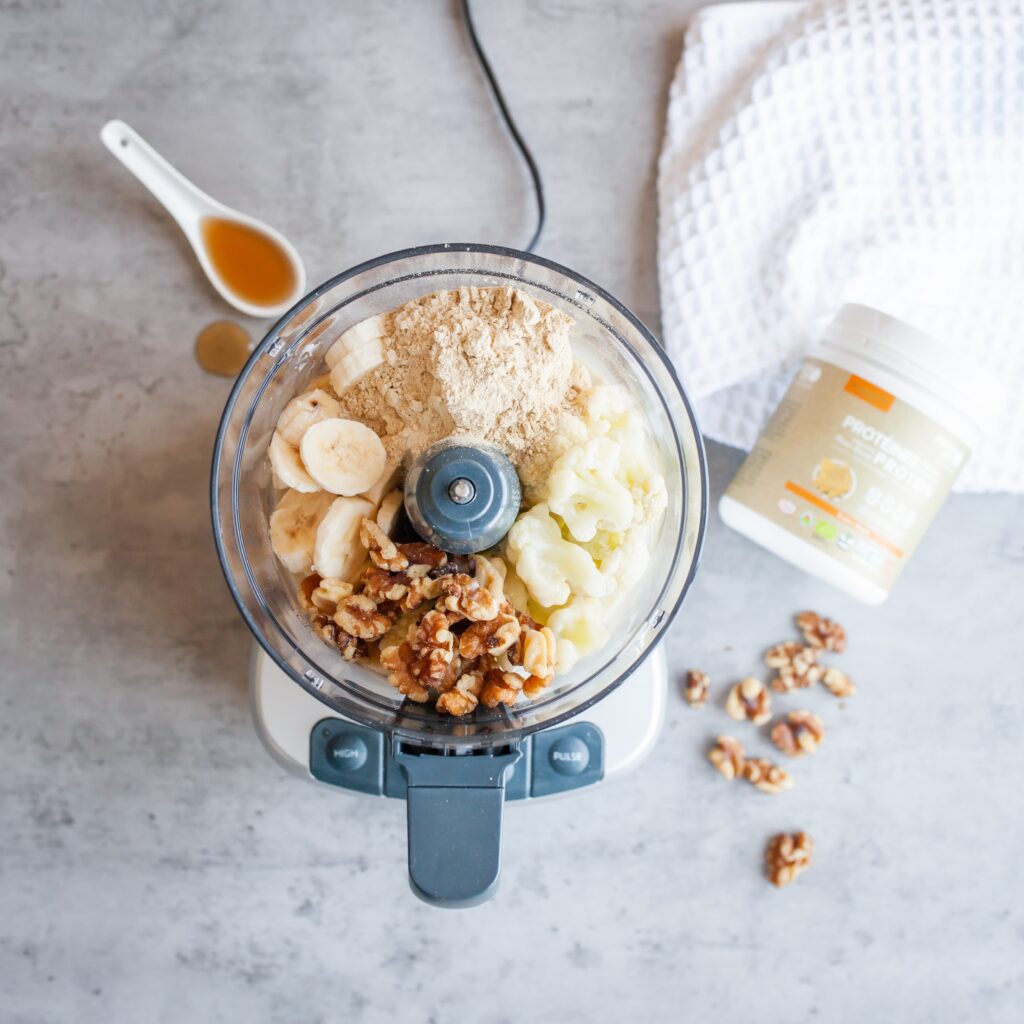
Vegan Cereal and Health
Balanced Diet
Incorporating vegan cereal as part of a balanced diet can contribute to overall health and well-being. Pairing cereal with plant-based milk and adding fresh fruits or nuts can create a well-rounded breakfast that provides a good balance of carbohydrates, protein, and healthy fats. It’s important to include a variety of foods from different food groups to meet all nutritional requirements.
Weight Management
Vegan cereals are often low in fat and high in fiber, making them an excellent choice for those looking to manage their weight. The high fiber content promotes feelings of fullness and can help prevent overeating. Additionally, the nutrient-dense nature of vegan cereals ensures that you are getting essential vitamins and minerals without excessive calories.
Digestive Health
The fiber-rich nature of vegan cereals supports a healthy digestive system. Fiber helps regulate bowel movements, prevents constipation, and supports the growth of beneficial gut bacteria. By incorporating vegan cereals into your diet, you can promote a healthy gut and maintain optimal digestive health.
Common Concerns about Vegan Cereal
Lack of Protein
While some vegan cereals may have lower protein content compared to their non-vegan counterparts, it’s crucial to remember that protein is readily available from other plant-based sources. By pairing your cereal with plant-based milk, adding nuts or seeds, or incorporating other protein-rich foods into your meals throughout the day, you can easily meet your protein needs.
Fortification
Many vegan cereals are fortified with important nutrients such as iron, calcium, and vitamin B12. Fortification ensures that these essential nutrients, which are typically found in animal products, are included in vegan cereals. However, it’s always a good idea to check the label for fortification details to ensure you are getting a well-rounded nutritional profile.
Allergens
While vegan cereals do not contain common allergens such as dairy, eggs, or gluten, it’s important to check the label for any potential allergens that may be present. Some vegan cereals may have ingredients like tree nuts, soy, or sesame, which can trigger allergies in some individuals. Always read the ingredient list carefully if you have any specific dietary restrictions or allergies.
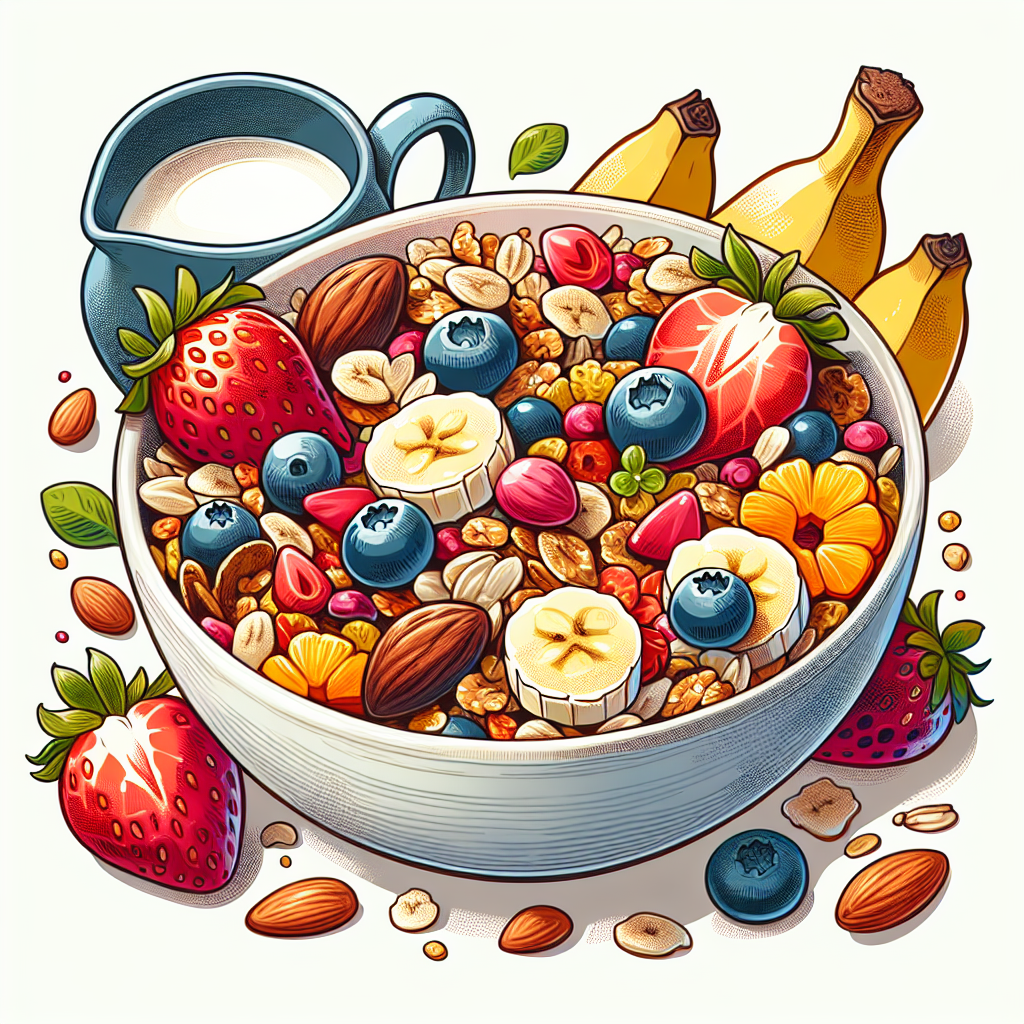
Vegan Cereal for Kids
Importance of Balanced Nutrition
Just like adults, children require a balanced diet to support their growth and development. Vegan cereals can be an excellent choice for kids as they provide essential nutrients while being free from artificial additives and excessive sugar. Pairing vegan cereals with plant-based milk and adding fresh fruits can help create a nutritious and flavorful breakfast for children.
Choosing Kid-Friendly Options
When selecting vegan cereals for children, it’s important to consider their taste preferences and dietary needs. Opt for cereals that have a mild flavor and a texture that appeals to children. Look for options that are fortified with essential vitamins and minerals, ensuring that your child receives the necessary nutrients for their growing bodies.
Conclusion
In conclusion, vegan cereals offer a nutritious and delicious breakfast option for individuals looking to follow a plant-based lifestyle or simply add more health-conscious choices to their diet. With a wide range of brands and homemade recipes available, there are plenty of tasty and wholesome options to choose from. By considering the nutritional value, health benefits, and environmental impact of vegan cereals, you can make informed choices that align with your values and contribute to a healthier, more sustainable future. So go ahead and explore the world of vegan cereals – your taste buds and the planet will thank you!
